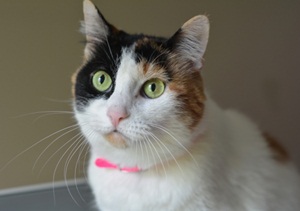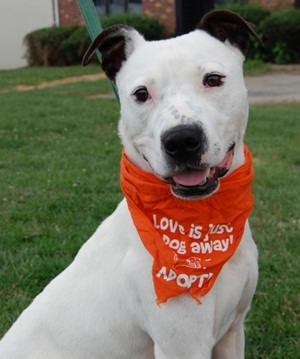Pet Adoption
If you are thinking about adding a four-legged member to your family, consider adopting your pet from a local shelter or rescue.
Search for adoptable pets at Petfinder.com or a local shelter or rescue.
Save a Life
The simple fact is that there are more people who give up their pets, and too few people who adopt from shelters and rescues. By adopting from an animal shelter or rescue group, you’ll help save the lives of two animals—the pet you adopt and a homeless animal somewhere who can be rescued because of space you helped free up.

Shelter Animals Make Great Pets
A “second-hand” pet in no way means second-rate. Most shelter and rescue pets are healthy, affectionate animals. Many have already lived with a human family and have the basic training, socialization, and cooperative skills they need to become part of your household. It is a common misconception that animals end up in shelters or with rescue groups because they’ve been abused or done something “wrong.” In fact, most animals are given to shelters or rescue groups because of “people reasons,” not because of anything they’ve done. Things like a divorce, a move, lack of time, and financial constraints are among the most common reasons pets lose their homes.
In addition, all Delaware shelters examine and give vaccinations to animals when they arrive, and spay or neuter them before being adopted. In addition to medical care, shelters also screen animals for specific temperaments and behaviors to make sure each family finds the right pet for its lifestyle.
Unconditional Love
An adopted pet can enrich your life in ways both big and small. The unconditional love and loyalty of a dog or cat can lift depression, ease loneliness, lower blood pressure, and give you a reason to get up in the morning. A kitty asleep in your lap feels warm and comforting. A dog that loves to walk or run outdoors can be just the incentive you need to start exercising regularly. There are countless benefits to pet ownership, and knowing you saved your furry companion makes the bond you share that much more meaningful.
Greater Choice
There are plenty of animals to choose from at most shelters. They come in every age, shape, size, coat color and breed mix, and you can find purebreds at shelters as well. In fact, many breeds have their own rescue organizations, so if you’re looking for a purebred, make sure to check both your local shelter and breed rescue organization.
Shelter Pets Are a Bargain
For a low adoption fee, you can adopt an animal that would cost several hundred dollars through other means. The fee includes spay or neuter surgery, worming and vaccinations. Many times it also includes microchipping and a certificate for a free health exam.

Don’t Support Cruel Puppy Mills and Other Irresponsible Breeding Operations
When someone buys a puppy or kitten online, from a pet store, or at an open-air market or through a newspaper ad, they may be unknowingly supporting cruel practices that are motivated purely by profit. Puppy and Kitten Mills are commercial breeding facilities that mass-produce dogs and cats for sale through pet stores, or directly to consumers through classified ads or the Internet. The animals are subject to inhumane treatment, such as living their entire lives in squalid, overcrowded cages, over-breeding, and medical neglect. These animals are often in ill health and have problems like poor socialization skills due to lack of human companionship and genetic defects due to inbreeding.
Learn more about Puppy Mills:
Irresponsible animal breeders are also motivated by profit and are generally unknowledgeable about responsible breeding practices. These breeders often do not screen for genetic defects, do not provide adequate veterinary care, and may overbreed animals for years jeopardizing the animals’ welfare.
If you have checked your local animal shelters and rescues and do not find the right pet for your family, or if you choose to buy an animal from a breeder, please find one where the animal’s best interest is at the core of what they do.
Responsible animal breeders understand good animal husbandry practices and work hard to ensure the best care for their animals.
Here are resources for finding a responsible breeder:
- The Humane Society of the United States Guide on Finding a Responsible Breeder
- Ask a Responsible Breeder
Return to Office of Animal Welfare home page.
![]() Please note: Some of the files available on this page are in Adobe PDF format which requires Adobe Acrobat Reader. A free copy of Adobe Acrobat Reader can be downloaded directly from Adobe . If you are using an assistive technology unable to read Adobe PDF, please either view the corresponding text only version (if available) or visit Adobe’s Accessibility Tools page.
Please note: Some of the files available on this page are in Adobe PDF format which requires Adobe Acrobat Reader. A free copy of Adobe Acrobat Reader can be downloaded directly from Adobe . If you are using an assistive technology unable to read Adobe PDF, please either view the corresponding text only version (if available) or visit Adobe’s Accessibility Tools page.



